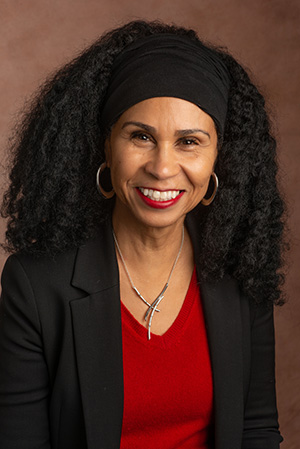
An exclusive grant from the Association of American Medical Colleges (AAMC) will allow WMed to expand and re-energize its Engagement and Discovery course for students and continue to be a catalyst for addressing racism and advancing health equity.
The medical school was one of five institutions from across the country to be selected as a recipient of the 2023 AAMC Nurturing Experiences for Tomorrow’s Community Leaders (NEXT) Grant. WMed and the other four institutions - Albert Einstein College of Medicine, UC Riverside School of Medicine, University of North Carolina at Chapel Hill, and Yale School of Medicine - will each receive $40,000 over the next two years to support the development or expansion of an experiential community-partnered learning opportunity.
At WMed, the money will fund a project – “Facing Racism as a Part of Medical Education” (FRAME) – led by Cheryl Dickson, MD, MPH, chief diversity officer and associate dean for Health Equity, and Matt Longjohn, MD, MPH, assistant professor in the Department of Family and Community Medicine.
As part of the initiative, WMed is partnering with Kalamazoo-based Eliminating Racism and Creating and Celebrating Equity (ERACCE) to improve WMed students’ understanding of racism as a social driver of health and equip students to address health inequities in their future careers by engaging them in anti-racism service-learning and systems-change activities.
“This grant came along at the right time for us because we were trying to figure out how to re-organize the Engagement and Discovery course,” Dr. Dickson said. “The idea is for students to really work with community organizations that are safety net providers and serve populations with higher risk factors. Our students need that exposure so they can clearly understand the needs in the community and what it is they can do to work with those safety net providers to more effectively address the health disparities and inequities that we see.”
The Engagement and Discovery course is a 17-month endeavor that begins for WMed students during their first year at the medical school. In previous years, students have participated in service-learning projects throughout Southwest Michigan, including handing out free meals, volunteering at local COVID-19 vaccination clinics, or working with elementary, middle, and high school students as part of the Early Introduction to Health Careers (EIH) pathway program.
“Our health care system frequently fails patients, families, and communities of color,” Dr. Longjohn said. “The Engagement and Discovery course reflects an understanding that today’s medical education system is a part of tomorrow’s health care delivery system. To address immoral inequities associated with race, we have to change the way future health professionals are educated and involve them in creating more equitable solutions.”
With the FRAME project, Drs. Dickson and Longjohn want to enhance the Engagement and Discovery course and review in-class content for students with the help of leaders at ERACCE to ensure that students are equipped as future physicians to advance health equity and address racism while also taking part in experiences that will equip them to organize, implement, and assess systems-change and systems-navigation projects.
“Racism is a public health problem and structural racism has created a lot of the problems we see today,” Dr. Dickson said. “We felt like this was something where we could take a close look at how we talk about race and all the -isms, and how it’s all included in our curriculum. This is an opportunity to work with an organization like ERACCE where that’s really what they’re about and it is also an opportunity for us at WMed to really put a lens on ourselves and our curriculum and how we’re doing it.”
According to the AAMC, the primary goals of the NEXT Grant are to:
- Create or enhance opportunities to engage learners in health and health care educational initiatives to confront racism and advance health equity in partnership with local communities.
- Increase learners’ knowledge about and ability to apply anti-racism, social justice, and health equity principles within the context of a community-level issue.
- Promote collaborative, community-engaged, and intersectional approaches to improving health outcomes among communities and patients who have been historically marginalized.
For more information about the AAMC NEXT Grant, visit www.aamc.org/nextgrant.
